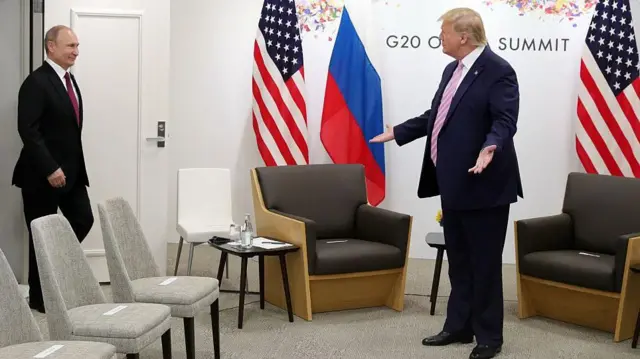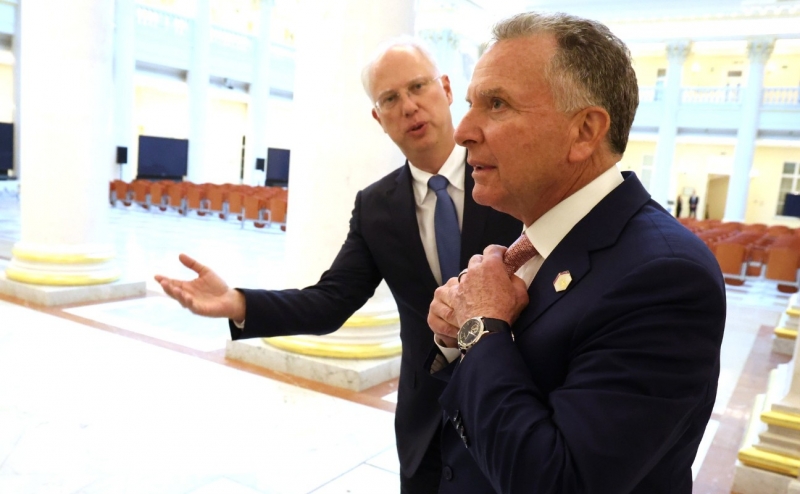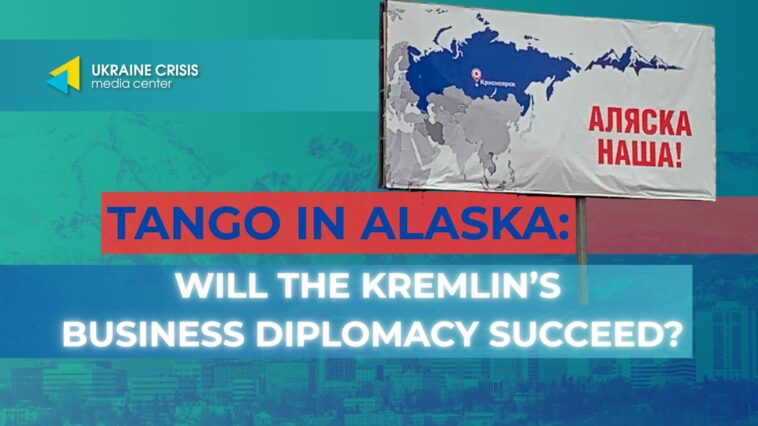On August 15, 2025, the first meeting between the presidents of the United States and Russia will take place after Donald Trump’s re-election. Official reports state that the main topic will be ending Russia’s war against Ukraine.
Donald Trump ran for office promising to end the war within days. However, faced with the Kremlin’s intransigence, the American president was forced to admit that his campaign statements were “sarcasm.” Since taking office, Trump has repeatedly set tough deadlines but has so far refrained from targeted action against Moscow. The White House explains the U.S. president’s restrained stance by his unwillingness to narrow the diplomatic track – at least while there remains hope of reaching an agreement with the Russian side.

Following a recent visit by U.S. Special Envoy Steven Witkoff to the Kremlin, the sides agreed on a personal meeting between the presidents. This development has eased the threat of new restrictions on Russia: the announcement of the summit put on hold Washington’s plans to impose secondary sanctions on buyers of Russian oil and to provide Ukraine with long-range weapons. Thus, even before it has begun, the summit has already delivered Putin an important interim victory – delaying the West’s economic and military pressure.
The very fact that the leaders of the U.S. and Russia will sit down at the negotiating table without Ukraine or European allies is a success for Moscow.
According to Russian sources, Moscow is betting on economic diplomacy. It is expected that Putin will be accompanied to Alaska by a delegation of Russian business figures ready to propose large-scale investments in this U.S. state.
According to media reports, the delegation may be headed by Kirill Dmitriev, CEO of the Russian Direct Investment Fund (RDIF). It is worth noting that since the beginning of talks between the Kremlin and the current U.S. administration, Dmitriev has been overseeing the track of economically “wooing” Trump. Other possible participants include the heads of the largest state corporations and oligarchs close to Putin: Sergey Chemezov – CEO of the state corporation Rostec; Igor Sechin – CEO of the oil company Rosneft; Roman Abramovich – billionaire and former governor of Chukotka, known for his international connections; Oleg Deripaska – metals magnate, former owner of the aluminum giant Rusal; Leonid Mikhelson – co-owner of the gas company Novatek, which develops LNG projects in the Arctic.

Most of the individuals listed are under U.S. sanctions. However, sources say that they may be temporarily granted sanctions relief for the trip to Alaska – such precedents have already occurred. For example, Dmitriev was able to visit Washington a few months ago despite being under personal sanctions.
It should be noted that there is no official confirmation of the businessmen’s participation in the summit, and given the format of the presidents’ bilateral meeting, it is unlikely that outsiders will sit at the negotiating table. The role of this delegation is rather to demonstrate that Russia has a package of economic proposals and is ready for dialogue with a business-oriented approach, something that appeals to Trump as an entrepreneur.
The goals of the Russian business delegation directly stem from Moscow’s interest in normalizing relations with the United States through economic benefits. The Russian side is trying to expand the summit’s agenda beyond purely military and political issues, bringing in economic topics attractive to Trump.
The Arctic cooperation track is a key one. It involves energy, transport infrastructure, and logistics development. Back in the 2010s, ExxonMobil worked with Rosneft in oil exploration in the Kara Sea, and although those projects were frozen due to sanctions, the partnership’s potential has not disappeared. Russian representatives hint that in the event of a thaw in relations and lifting of restrictions, American oil giants could return to the Russian Arctic, gaining access to new resources, while Russia would receive the necessary investments and technologies.
The second block is a proposal for investments in Alaska itself. According to Russian sources, the business delegation is ready to present Trump with a plan to invest significant funds in the state’s economy. Notably, Roman Abramovich once invested substantial sums in the development of Chukotka (a Russian region across the strait from Alaska), and his experience could be useful in similar projects in Alaska.

The third important topic is sanctions and business ties. The Kremlin insists that the sanctions regime harms both sides and that its easing would serve mutual interests. Russian experts remind that Washington also suffers from the severing of economic ties: according to Dmitriev, U.S. businesses have lost more than $300 billion due to their exit from the Russian market after the start of the war. It is not ruled out that the Russian side will be ready to offer Washington certain economic concessions or preferences in exchange for lifting some restrictions. The condition for this would likely be reaching agreements on Ukraine — in other words, implementing the principle of “sanctions relief in exchange for peace.”
The Kremlin signals its readiness for a “grand bargain”: peace in Ukraine and certain geopolitical concessions in exchange for investments and partnership with the United States. Kirill Dmitriev has already called Alaska an ideal place “where Russia and the United States are separated by only 3.8 km” and urged to “peacefully move from yesterday into tomorrow.”
However ambitious this Russian goal may seem, negotiations with the United States at the highest level and discussions of economic projects automatically raise Moscow’s international status. For Putin, this is a chance to secure the image of a peacemaker who has supposedly offered the United States “a good deal.” For Trump, it is an opportunity to gain a foreign policy trophy, showing that he can strike deals where his predecessors saw only a dead end. Whether these hopes will be fulfilled remains to be seen, but it is clear that the economic component will play a central role in all calculations by both sides at the Alaska summit.
Mykyta Kuzmenko



